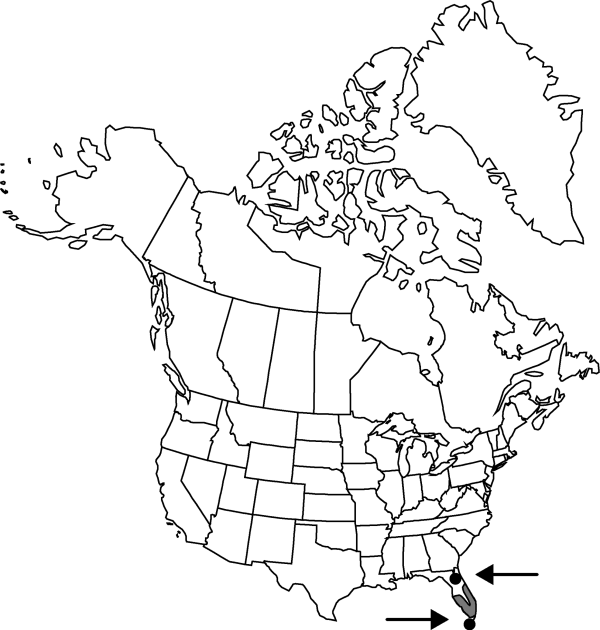Alternanthera flavescens
in A. von Humboldt et al., Nov. Gen. Sp. 2: 207. 1818.
Herbs, perennial, 6–15 dm. Stems ascending to spreading, often clambering, pubescent, glabrate. Leaves sessile; blade ovate to lanceolate or elliptic, 1.8–8 × 0.5–3 cm, herbaceous, apex long-acuminate or acute, sparsely strigose or glabrous. Inflorescences terminal and axillary, pedunculate; heads yellowish white, subglobose to cylindric, 0.9–2.5(–4) × 0.9–1 cm; bracts keeled, less than 1/2 as long as tepals. Flowers: tepals monomorphic, green, lanceolate, 3.4–4.7 mm, apex acute, villous, hairs not barbed; stamens 5; pseudostaminodes ligulate, margins laciniate. Utricles included within tepals, greenish yellow, ellipsoid, 2.5 mm, apex acute. Seeds ovoid, 1.2–1.3 mm.
Phenology: Flowering year-round.
Habitat: Coastal hammocks, thickets, sand bars
Elevation: 0 m
Distribution

Introduced; Fla., Mexico, West Indies, South America.
Discussion
Alternanthera flavescens has long been known as A. ramosissima (Martius) Standley.
Selected References
None.